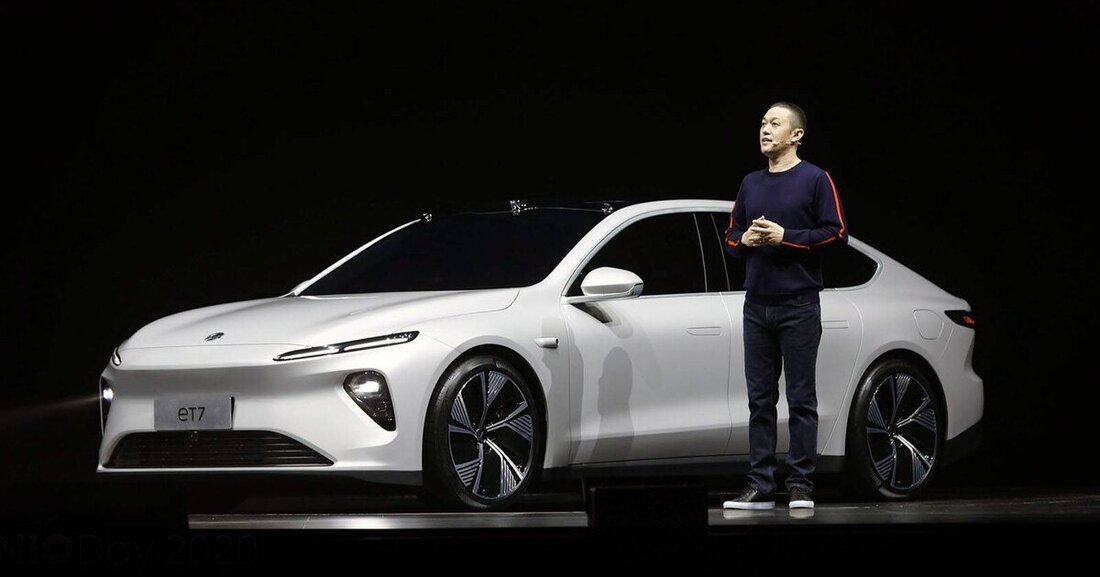Revolutionary solid-state battery at the start
The Chinese car manufacturer NIO is introducing its luxury sedan ET7, the first electric car equipped with a solid-state battery. We asked battery researcher Marcus Jahn from AIT how the recent announcement of this miracle battery should be assessed.

Revolutionary solid-state battery at the start

This week in Chengdu, China, NIO boss William Li presented the 5 meter long and almost 2 meter wide ET7 luxury sedan, which, thanks to new battery technology, is said to have a range of over 1000 kilometers according to the old NEDC standard, which corresponds to approximately 800 kilometers according to WLTP. The electricity storage device with a capacity of 150 kWh will work with solid electrolytes instead of the liquid electrolytes that are common today and will be available in the ET7 at the beginning of next year. This announcement is causing astonishment in expert circles. Numerous research institutes around the world are working on the revolutionary solid-state batteries, which will be significantly safer and more powerful compared to the lithium-ion batteries commonly used today, but series use in electric cars was not expected before 2025.
Realistic expectations
We asked battery expert Marcus Jahn, who works as a senior research engineer at the Austrian research institute AIT, how realistic the current announcement from China is. “Of course I can’t give a direct opinion on specific companies like NIO, but at least I can give a general assessment of the technology,” says Jahn. Since NIO has not yet published any specific driving data for the ET7, he is relying on guesswork. “The solid-state batteries with a capacity of 150 kWh are said to have a 50% increased energy density compared to conventional cells - although it is unclear how a technology that uses conventional cell components such as cathode and anode achieves such an increase,” says Jahn. Even if this is still possible, it remains questionable whether it is really a solid-state battery in the strictest sense or more of a hybrid that contains at least a small proportion of liquid electrolyte. “It is certainly not impossible that such a technology has already been demonstrated in a laboratory or in small prototype production, but the big challenge lies in the area of manufacturing and production scaling,” says Jahn. The current roadmap forecasts up to series production are therefore usually given for 2025 and later. “For series production, certification of the technology is usually required much earlier - we know from AIT experience that such tests and certifications take some time to meet international safety requirements,” summarizes battery researcher Jahn. The fact is: The new Nio ET7 can now be ordered in the Nio app and will be delivered in early 2022 first in China, where NIO also wants to set up 500 innovative battery changing stations. The basic model costs the equivalent of around 56,000 euros, the Premier Edition around 66,000 euros.

 Suche
Suche
 Mein Konto
Mein Konto